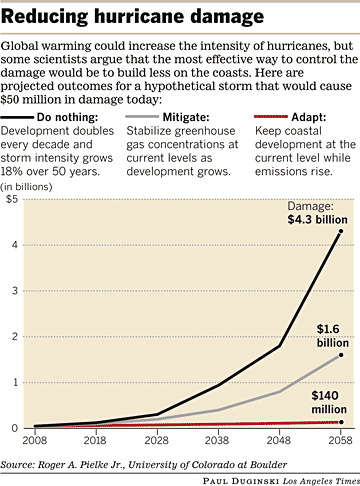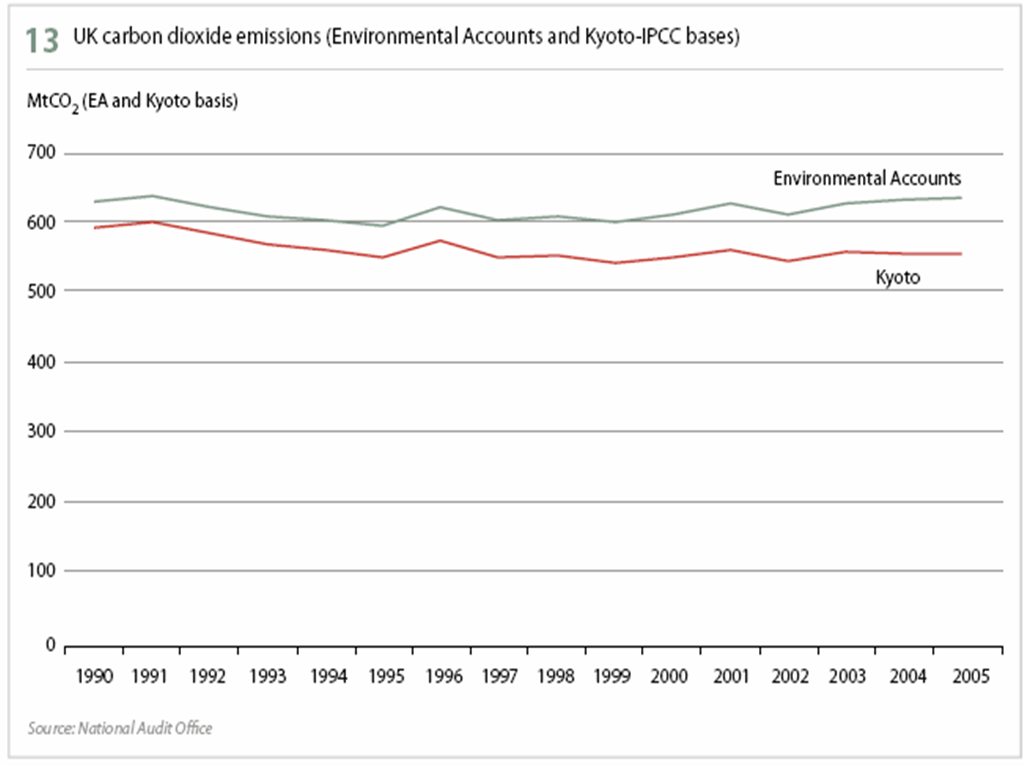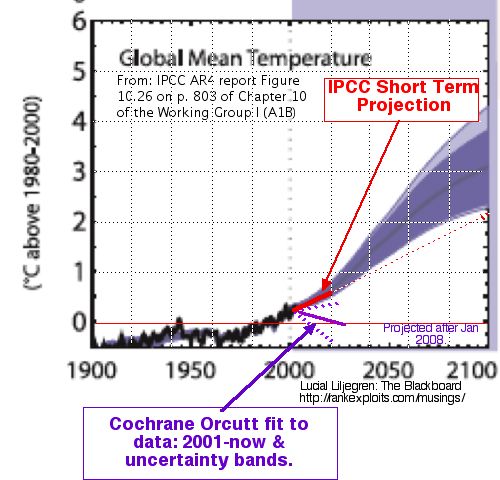Setting a Trap for the Next President
March 29th, 2008Posted by: Roger Pielke, Jr.
An editorial in todays New York Times reports that the Bush Administration (and specifically the U.S. EPA) is considering some action on climate change:
On April 2, 2007, the Supreme Court ruled that the Clean Air Act clearly empowered the Environmental Protection Agency to address greenhouse gas emissions from cars and trucks. The ruling instructed the agency to determine whether global warming pollution endangers public health and welfare — an “endangerment finding” — and, if so, to devise emissions standards for motor vehicles.
One year has passed, and despite repeated promises from President Bush and the E.P.A. administrator, Stephen Johnson, nothing has happened. And it seems increasingly likely that nothing will happen while Mr. Bush remains in office. Last week, Mr. Johnson notified Congress that he had discovered new regulatory complexities and decided against immediate action. Instead, he planned to offer an “advanced notice of proposed rule-making,” which requires a lengthy comment period and a laborious bureaucratic process that would almost certainly stretch beyond the end of Mr. Bush’s term.
The NYT fails to see one important aspect of this strategy. Issuing an “Advanced Notice of Proposed Regulation” (ANPR) is in fact a significant step in the regulatory process. Importantly, in the regulatory process it turns the burden of of proof around from the need to show harm in order for regulation to occur, to the need to show safety for the regulation not to occur. Proving that a substance is safe, under the assumption that it is harmful, is a much more difficult challenge than the opposite.
So if the Bush Administration were in fact to issue an ANPR it would be a fairly significant act, especially for this administration. It would signal that greenhouse gas regulations are in fact coming.
But the important question is when. The Times notes correctly that the regulatory process would stretch beyond Bush’s term. And of course this might be precisely the point of issuing an ANPR. It would saddle the next Administration with the challenge of figuring out how to regulate greenhouse gas emissions from autos. As we have recently seen in Europe, creating and implementing such regulations is a messy affair.
Not long ago I wrote of this possibility in my column for Bridges (PDF):
So if a Democrat is elected in November 2008, which appears likely, it seems eminently plausible that the Bush Administration would help the new administration get off to a running start by leaving them with a proposed rule, under the EPA, for the regulation of carbon dioxide emissions. Even the possibility of such a
late-hour action is probably enough for the declared Democratic presidential candidates to be very careful about calling for dramatic action on climate change, lest – if elected – they find themselves getting what they asked for.Because no one really yet knows how to reduce carbon dioxide emissions by any significant amount, a strong proposed rule on climate change issued in the final months of the Bush Administration would create all sorts of political difficulties for the next president, just as those late-hour rules proposed by President Clinton did for President Bush. If reducing emissions indeed proves to be easy, as some have suggested, President Bush would get credit for taking decisive action. If it proves difficult and costly, as many suggest, then the next administration would bear the political backlash.
Common wisdom that the Bush Administration will not act meaningfully on climate change may in the end prove to be correct. But, at the same time, remember that lame ducks are unpredictable creatures.
My guess — and it is nothing more than a guess — is that the announcement of an ANPR on automobile emissions will occur — if it is to occur at all — after the November election, and only if a Democrat is elected. Of course, if McCain wins the election and the Bush Administration still announces the ANPR, then you can assume that there is still little love lost between the two, as the ANPR would saddle McCain with some sure problems during his presidency.
Finally, if you’d like to read the story of how Jimmy Carter’s late-hour ANPR on stratospheric ozone eventually paved the way for domestic regulations and then international accords, please have a look at the following paper:
Pielke, Jr., R. A., and M. M. Betsill, 1997: Policy for Science for Policy: Ozone Depletion and Acid Rain Revisited. Research Policy, 26, 157-168. (PDF)


